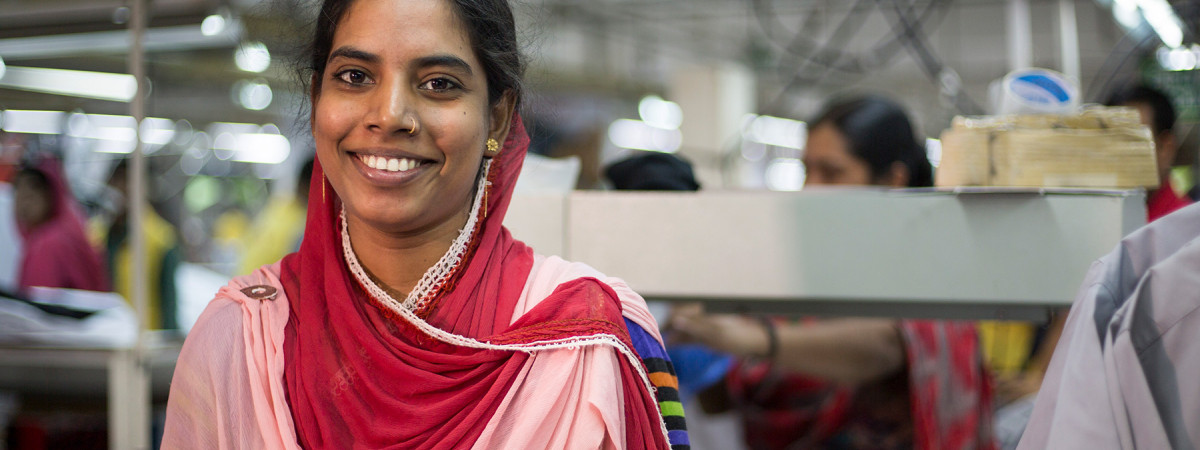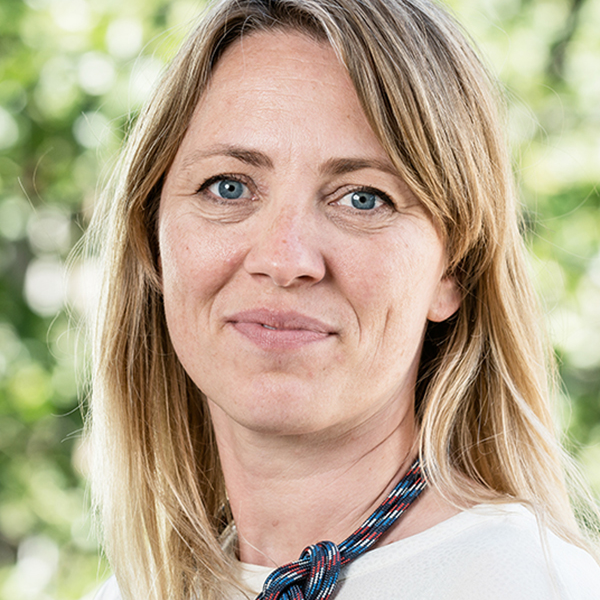
Photo by Sergii Kozak on iStock
This International Women’s Day, BSR is celebrating the launch of RISE (Reimagining Industry to Support Equality), a collaborative initiative from BSR’s HERproject, Gap Inc. P.A.C.E, CARE, and Better Work to scale impact and accelerate equality for women workers in global garment supply chains.
We asked Aron Cramer, President and CEO, BSR and Christine Svarer, Executive Director, RISE about the formation and ambition for the initiative.
Combining the fashion industry’s four largest women’s empowerment programs seems like a logical move. How did it come about?
Christine: Having had a relatively similar journey, since each of the four founding partners started working on women’s empowerment around 2007, we have been collaborating on specific initiatives in an ad hoc fashion. It’s been a friendly coexistence. However, in recent years, we’ve noticed bumping into each other in the same workplaces, sometimes delivering very similar activities. This means there is potential for duplication and confusion across the industry, potentially leading to fatigue in the same way we’ve seen with audits and inefficient deployment of resources, halting our ability to support a greater number of workers.
For a very long time, we have been saying to business that advancing gender equality is best done in a collaborative manner. No one entity can tackle this alone. With that, it was quickly clear that coming together as one single entity was the only way to accelerate progress on gender equality in supply chains.
What do you hope RISE will achieve that was not possible as individual initiatives?
Aron: We are certainly proud of what we have been able to accomplish through the 15 years of HERproject. But we are also aware that there are systemic barriers to women’s empowerment, and they require systemic solutions. There are three simple and structural reasons why RISE can achieve even greater impact. First, we can remove duplication and redundancy in the delivery of our respective programs. Second, we can leverage each other’s strengths, as we each bring slightly different assets and experience to our work. And third, we can speak with one voice, and that consistency will enable greater impact both operationally and as we aim to influence markets and policy.
We believe that the result of all this will be a collective ability to reach more women—and men—to ensure women can thrive in their roles in global garment supply chains.
As it is International Women’s Day, can you give us an idea of the international reach of RISE and how it supports women garment workers?
Christine: We are immensely proud to have supported more than five million workers in over 20 countries in partnership with 70 global companies. There is still a long way to go if we want to see women workers fulfill their economic potential, supported by industry and other key stakeholders.
Women workers continue to be concentrated in low-wage, low-skilled, low-status roles. While these jobs offer women access to employment in the formal economy —which is important—women workers still face barriers such as discriminatory social norms, limited access to formal financial services, exclusion from career advancement and higher-paying opportunities, and risk of sexual harassment and gender-based violence in the world of work.
RISE works to tackle all these barriers in its workplace activities. We want to complement that by intentionally working with brands, buyers, and suppliers to activate strategies that both embed and reward progress on gender equality.
We also have plans to set up a data platform that can both map live activities to avoid duplication as well as produce a simple set of data points to support businesses in making gender-responsive decisions, inform worker representatives and policymakers, and increase the visibility of women workers.
How will RISE help the fashion industry deliver real action and impact for businesses and women workers?
Aron: We believe that RISE can truly elevate women’s empowerment in the global apparel sector. Through RISE, the industry will be able to apply leading edge programs to enable women to thrive. The initiative will provide a common platform on which all elements of the industry—buyers, suppliers, workers, workers’ representatives, and local communities—can learn from and contribute to. We hope it will be recognized as a new norm for the industry: something that both enables and demonstrates a strong commitment from all industry stakeholders.
From our experience with HERproject, we know that doing so delivers great benefits for women and strengthens the enterprises that embrace the model. We see RISE as being able to create a new norm that can define the industry at a time of immense change.
How can business get involved with RISE?
Christine: RISE is based on membership from brands, buyers, and suppliers anywhere in the world. So, the first step is to get on board as a member. In addition, we work with our member companies to enroll workplaces within their supply chain—either individually or together with other brands, buyers, and suppliers—into one of the RISE programs which we develop and deliver in partnership with local organizations. We also work with both our company and donor partners to continuously deepen our impact and scale. For example, we’re currently working with a small set of companies on evolving our approach to gender-based violence. We’re also looking for company partners who want to help us build our approach to women’s advancement and leadership.
RISE is a platform for collaborative action. Contact us. We’d very much like to hear your ideas.
Topics
Let’s talk about how BSR can help you to transform your business and achieve your sustainability goals.









